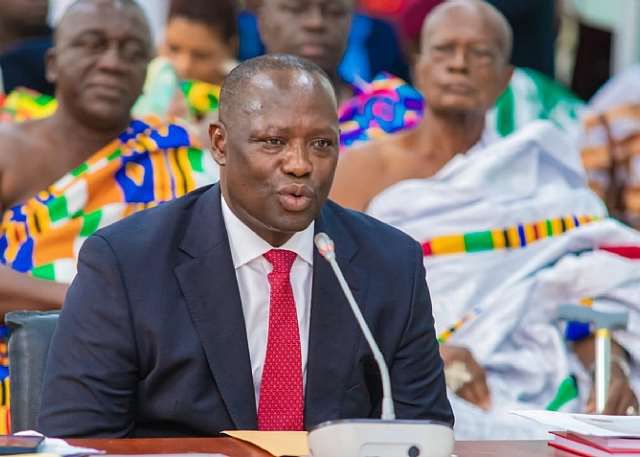The Minister for Lands and Natural Resources, Emmanuel Armah Kofi-Buah, has issued a directive mandating mining companies operating in Ghana to demonstrate a tangible positive impact on the communities they operate within. This directive goes beyond the conventional payment of royalties and emphasizes the need for proactive measures to empower local communities through youth training, job creation, and infrastructure development. This call for action stems from the long-standing grievances of mining towns across the country, which have consistently lamented the lack of development despite decades of mineral extraction, evidenced by poor road networks, inadequate healthcare facilities, and limited economic opportunities for residents. Mr. Kofi-Buah’s directive seeks to rectify this imbalance, urging mining companies to become active agents of development in these communities.
The Minister’s mandate, articulated during his appearance on GTV’s Breakfast Show, aims to reshape the mining sector by prioritizing local content and ensuring Ghanaian participation at all levels of the industry. He emphasized the need for mining companies to move beyond simply hiring local drivers and instead invest in nurturing young talent within the communities, developing a pipeline of skilled professionals, including engineers, who originate from the very areas affected by mining operations. This approach aims to foster sustainable development and ensure that the benefits of mineral extraction are directly experienced by the communities bearing the environmental and social costs of mining activities.
Central to the Minister’s vision is the development of essential infrastructure, including robust road networks and the establishment of a dedicated mining hospital. He stressed the importance of well-maintained roads to facilitate economic activity and improve access to essential services in mining communities. The proposal for a specialized mining hospital underscores the government’s commitment to addressing the unique health challenges faced by miners and the surrounding communities, potentially including respiratory illnesses and other occupational hazards associated with the mining industry. This comprehensive approach aims to ensure that the wealth generated from Ghana’s mineral resources translates into tangible improvements in the quality of life for its citizens.
Mr. Kofi-Buah’s call for increased corporate social responsibility within the mining sector is intricately linked to the government’s ongoing battle against illegal mining, commonly known as “galamsey.” This illicit activity has caused widespread environmental devastation, particularly through the pollution of rivers, a critical source of water for many communities. By compelling legitimate mining companies to contribute to local development, the government hopes to create a stark contrast with the destructive practices of illegal miners and to demonstrate the potential for responsible mining to be a force for positive change. This strategy aims to foster community support for sustainable mining practices and thereby undermine the appeal of illegal operations.
The Minister’s directive represents a significant shift in the government’s approach to managing the mining sector, moving beyond revenue collection to focusing on equitable distribution of benefits and sustainable development. It signals a commitment to ensuring that the exploitation of Ghana’s natural resources contributes to the long-term well-being of its citizens and does not perpetuate a cycle of environmental degradation and social inequity. The success of this initiative will depend on effective enforcement, transparent monitoring, and genuine collaboration between the government, mining companies, and local communities.
This directive, while ambitious, holds the potential to transform the narrative surrounding mining in Ghana. By prioritizing local content, infrastructure development, and community engagement, the government aims to create a mining sector that is both economically viable and socially responsible. The ultimate goal is to ensure that the extraction of mineral resources leaves a legacy of sustainable development and improved quality of life for all Ghanaians, particularly those living in communities directly affected by mining operations. This will require a sustained commitment from all stakeholders, including the mining companies themselves, to prioritize responsible practices and contribute meaningfully to the well-being of the communities they operate in.


